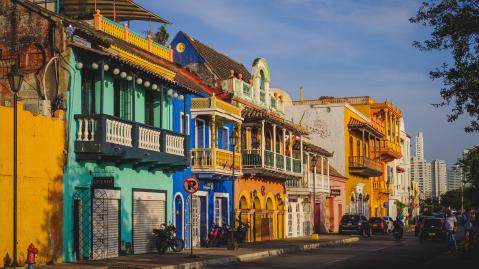Date
News Category
UPDATE: Colombia publishes climate law with provisions for a National Program of Greenhouse Gas Tradable Emission Quotas
Image

Copyright
© Leandro Loureiro / Unsplash
Lightbox Image (duplicate of Image)
Body (only for migrated news)
On 27 July 2018, Colombia adopted a climate law, which outlines provisions for the establishment of a National Program of Greenhouse Gas Tradable Emission Quotas (Programa Nacional de Cupos Transables de Emisión de Gases de Efecto Invernadero - PNCTE). While there is no explicit reference to carbon markets or emissions trading, such a program could be interpreted as allowing for the establishment of a national emissions trading system (ETS). This would make Colombia the second country in Latin America (joining Mexico) to enact legislation for a national ETS.
Articles 29–33 lay out the basic provisions for the PNCTE. The number of quotas will be determined by the Ministry of Environment and Sustainable Development (Minambiente), in line with Colombia’s national mitigation targets. Minambiente is also in charge of allocation, which will primarily take place via auctions. The PNCTE will complement other mitigation instruments, such as the country’s existing carbon tax; the bill states that the government may also recognize carbon tax payments as part of the compliance obligation of regulated entities. Non-compliance with the PNCTE is punishable by a fine up to two times the auction price. Auction revenues will be directed to the National Environmental Fund (Fonam). The bill also includes crediting provisions: voluntary actions of non-regulated entities that generate GHG emissions reductions or removals could be issued quotas if they are verified, certified and registered in the National Registry.
The timeline for the PNCTE is not specified. The implementation of the program will be contingent on the priorities of the new administration, which will take office on 7 August 2018.
ETS Jurisdiction

